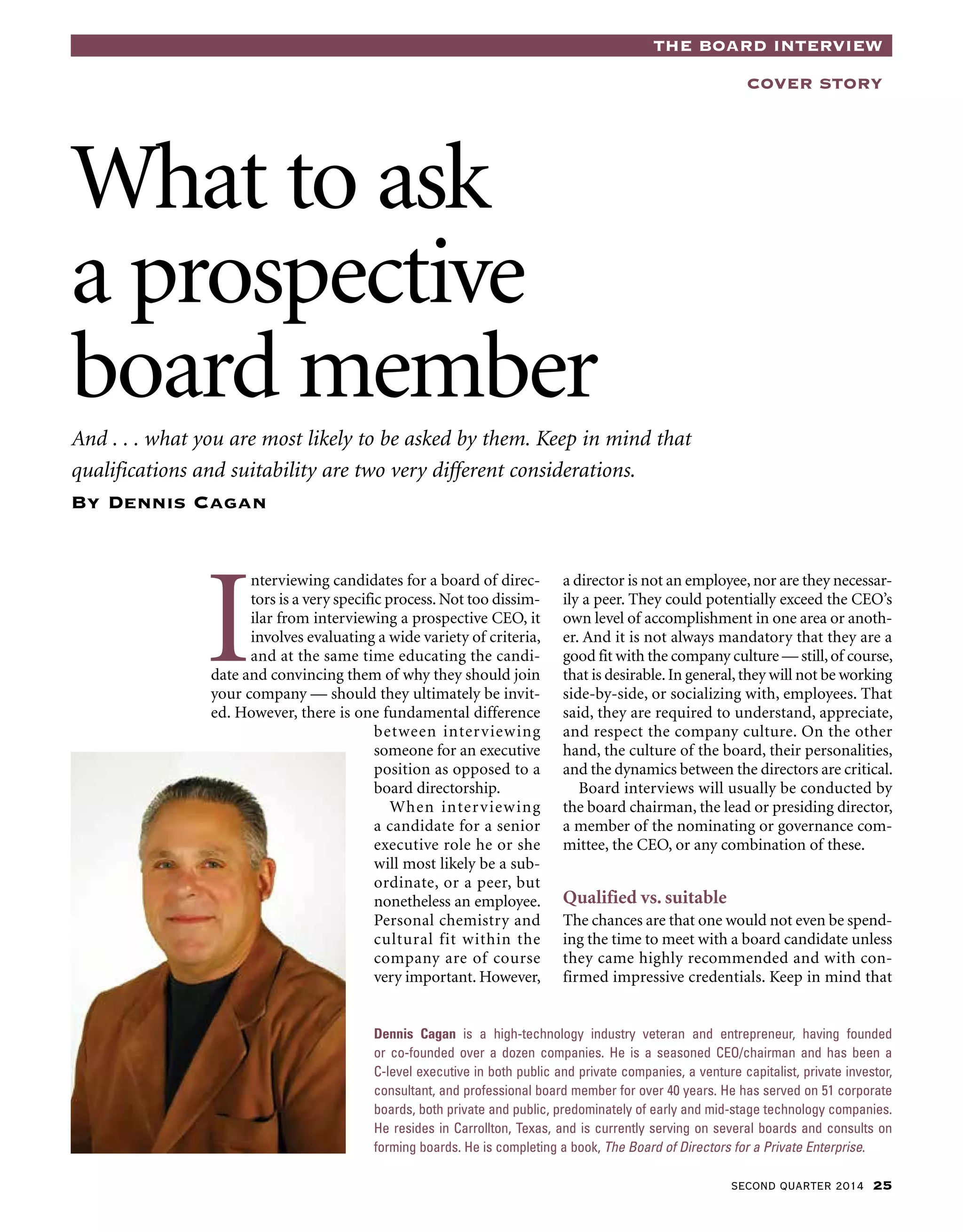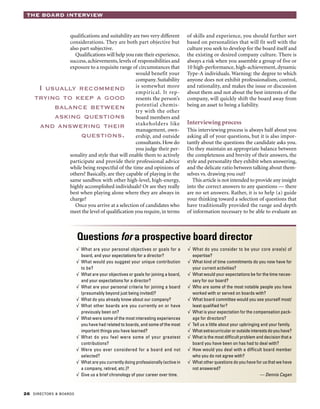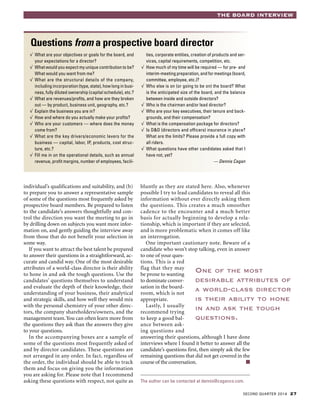The document discusses interviewing prospective board members. It notes that board interviews evaluate both qualifications and suitability. Qualifications relate to experience and achievements, while suitability relates to personality fit with the board and company culture. The interview should involve both asking and answering questions to understand qualifications, suitability, and how the candidate would contribute. Sample questions for the interview are provided for both the interviewer and candidate to ask. The goal is to find candidates who are both qualified and will fit well with the existing board personality and culture.


